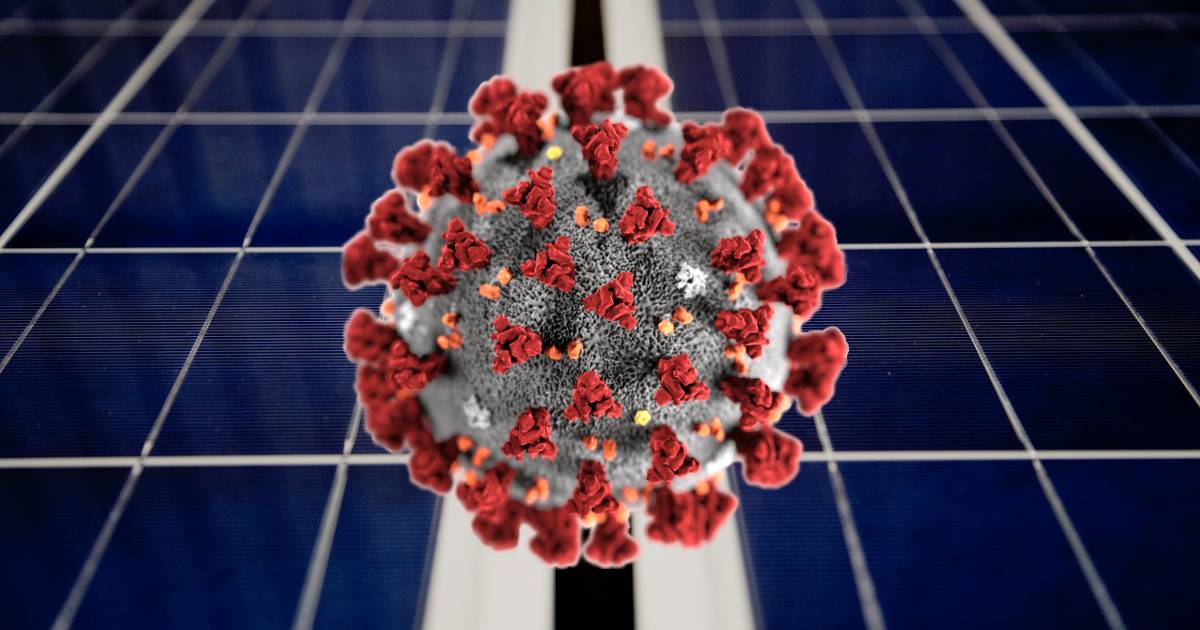As the human toll from the novel coronavirus climbs, so too has the impact on manufacturing – including solar component supplies.
More than 60% of the world’s solar panels are manufactured in China1, so any widespread interruption there can have significant knock-on effects over here. Events such as recent holidays in China are planned for well in advance, but this year saw those extended by 10 days due to the 2019 Novel Coronavirus (now officially named COVID-19).
SolarJuice is an Australian company wholesaling solar panels, solar inverters and associated components that has customers located in every state and territory.
On Monday, SolarJuice Co-Founder and Supply Director Rami Fedda flagged the challenges the coronavirus is posing after discussing the situation with a few solar panel manufacturers.
While many in China returned to work on Monday after the greatly extended holiday, some have been unable to make a start due to traveling from other provinces and needing to be quarantined for 14 days if they are from an area with infection – and there are plenty of those.
Mr. Fedda says this has resulted in factories being under-staffed. But the problems extend beyond the factory floor, with delays in transporting goods to ports and delays at ports in getting containers onto ships.
“We expect things to return back to normal to China around early March,” says Mr. Fedda, while warning the situation won’t be back to normal in Australia in terms of supply until early April.
As bad as that sounds, hopefully it’s not being too optimistic given how much is yet to be learned about what’s happening with COVID-19.
SolarJuice has plenty of solar panel stock at the moment as do some factories, but Mr. Fedda says that won’t last – he’s expecting problems in Australia from mid-March.
“No Panels, No Solar Installations”
To get past this rough patch, Mr. Fedda is advising customers to look at non-Chinese brands such as REC (manufactured in Singapore) and LG (manufactured in South Korea). Both are very good quality brands, but more expensive than panels from manufacturers such as JinkoSolar and Longi.
The supply issue isn’t just occurring with modules. Some solar inverter companies are assumed to have been affected as well; but the major concerns are focused on solar panels.
Aside from the tragedy of the misery the coronavirus has and will continue to wreak on those directly affected, it has highlighted how dependent we have become on the welfare of the people who power the “factory of the world”.
Footnotes
- According to Sunwiz, around 90 per cent of solar panels installed on Australian rooftops are made in China ↩


 RSS - Posts
RSS - Posts



Seems to me this couldn’t have come at a worse time for the solar industry, especially with political chaos in Canberra heading towards Category 8 cyclone proportions, and commonsense thrown over-board while LNP and Labour battle with each other for an entry in Ripley’s ‘Believe It or Not’
But, given the sad situation in China which may well worsen, being forced into seeking a more diversified supply chain could maybe prove to have longer term benefits, uncomfortable though that shift might be initially
This should not effect Australia, as we have a SUPERIOR solar panel manufacturing plant in Australia
Hi Daryl, I wasn’t aware that Australia had its own solar panel manufacturing plant now. Can you tell me more about it? Thanks
Tindo solar make solar panels in Adelaide (from imported cells).
Mustn’t forget the ol’ ASP’s from our friends at Eurosolar.,. ?
Hi Des , we have a full manufacturing facility in Mawson Lakes (Adelaide SA)
We are expanding and are about to build our new 2 story manufacturing plant,
https://www.tindosolar.com.au/
We have been in operation for around 10 years and the panels are high Quality,
Just ask Finn 🙂
I saw our Prime Minister recommend erring on the side of caution when it comes to the Coronavirus and said we should take a careful, evidence based approach, and rely on advice from medical experts. All the while being in favor of building more coal power stations.
How sad we have to rely on one nation where there are many given the chance can manufacture this and many more products. What about home grown or do we let the big multinationals make a huge profit from cheap labour
I am a gig be liver in distance and country pollution tax which will help local business and help help me say climate change